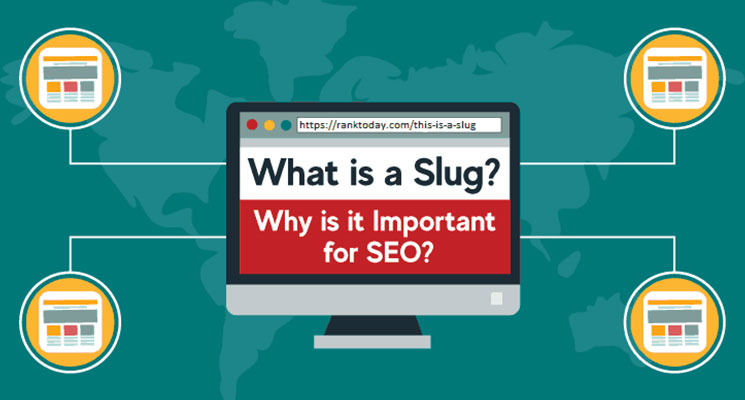In the world of Search Engine Optimization (SEO), every element of your website’s URL plays a crucial role in determining its visibility and ranking on search engine results pages. One such element is the SEO slug, an essential component often overlooked by website owners and content creators. In this article, we will explore what an SEO slug is, why it matters for your website’s SEO performance, and how you can optimize it to improve your online visibility.
Search Engine Optimization, commonly known as SEO, is a technique used in the realm of digital marketing to enhance the visibility and position of a website on search engine results pages (SERPs). By optimizing various elements, such as content, keywords, and website structure, SEO helps search engines understand and rank a website’s relevance to user queries.
When a website secures a prominent spot on search engine result pages (SERPs), its chances of drawing in organic traffic and prospective clients increase significantly. SEO is vital for businesses and online content creators as it drives organic traffic, boosts brand credibility, and enhances user experience. With effective SEO practices, businesses can reach a wider audience, increase website traffic, and achieve long-term success in the competitive digital landscape.
Understanding the SEO Slug
An SEO slug, also known as a URL slug or permalink, is the portion of a URL that comes after the domain name. It is a human-readable and search engine-friendly representation of the page’s title or content. For example, in the URL “www.example.com/blog/what-is-seo-slug,” the SEO slug is “/what-is-seo-slug.”
The Importance of Optimizing SEO Slugs:
Optimizing your SEO slugs is crucial for several reasons:
1. Keyword Relevance: Including relevant keywords in your SEO slug helps search engines understand the content of your page. When users search for specific keywords, well-optimized slugs increase the chances of your page appearing in the search results.
2. User Experience: A well-crafted SEO slug is more user-friendly and easily understandable. Users can quickly identify the content of the page by glancing at the URL, improving their overall browsing experience.
3. Click-Through Rates (CTR): A clear and descriptive SEO slug can entice users to click on your link when it appears in search results, potentially increasing your click-through rates.
4. Shareability: When users share your content on social media or other platforms, the SEO slug becomes a part of the shared link. An optimized slug can make your links more attractive and clickable, leading to increased sharing and visibility. Enhance your website’s structure and boost its visibility with Freelancebazar’s expert SEO services. Our team of experienced professionals will optimize your website, ensuring it ranks higher on search engines and attracts more organic traffic.
Optimizing Your SEO Slugs:
Now that we understand the importance of SEO slugs, let’s explore how to optimize them effectively:
1. Keep It Concise and Descriptive
Optimize your SEO slug by keeping it concise, usually around 3 to 5 words. Avoid using long, complex phrases or unnecessary stop words like “and,” “the,” or “in.” Instead, focus on including the main keywords that accurately describe the content of the page.
For example, if you are writing a blog post about “Tips for Beginner Photographers,” a well-optimized slug would be “/beginner-photography-tips.”
2. Use Hyphens to Separate Words
When constructing your SEO slug, use hyphens to separate individual words. Hyphens are more search engine-friendly and allow search engines to recognize separate words in the URL. Avoid using underscores or spaces, as they can cause readability issues and potentially lead to indexing errors.
3. Avoid Stop Words and Repetitive Keywords
Search engines frequently disregard stop words, which are commonly used words, while indexing content. These include words like “a,” “an,” “the,” “of,” and “in.” Unless they are essential for clarity, it’s best to exclude stop words from your SEO slug.
Additionally, avoid using repetitive keywords in your slug. Search engines may penalize content with repetitive or keyword-stuffed slugs, as this is seen as an attempt to manipulate search rankings.
4. Research Keywords
Explore different search terms in order to uncover the most pertinent and well-liked keywords associated with your specific content. Use these keywords in your SEO slug to increase its search engine visibility. Tools like Google Keyword Planner or other SEO keyword research tools can be helpful in this process.
5. Update Slugs for Content Changes
If you make significant changes to the content of a page, ensure that you update the SEO slug accordingly. Changing the slug without setting up proper redirects can lead to broken links and negatively impact your SEO rankings. Unlock the potential of your website with Freelancebazar’s expert assistance in improving your website structure and optimizing it for search engines. Boost your online visibility, increase organic traffic, and stay ahead of the competition. Let our team of seasoned professionals elevate your website’s performance and drive meaningful results.
6. Be Consistent
Consistency is key when it comes to SEO slugs. Use a standard format for your URLs across your website. This consistency helps search engines and users navigate your site more effectively.
Conclusion
An SEO slug may seem like a small and insignificant element of your website, but optimizing it can have a significant impact on your overall SEO performance. By crafting concise, descriptive, and keyword-rich slugs, you can improve your website’s visibility on search engine results pages, enhance user experience, and increase click-through rates. Remember to keep your slugs relevant, user-friendly, and consistent to effectively boost your website’s search engine rankings and online visibility.


Comments are closed, but trackbacks and pingbacks are open.